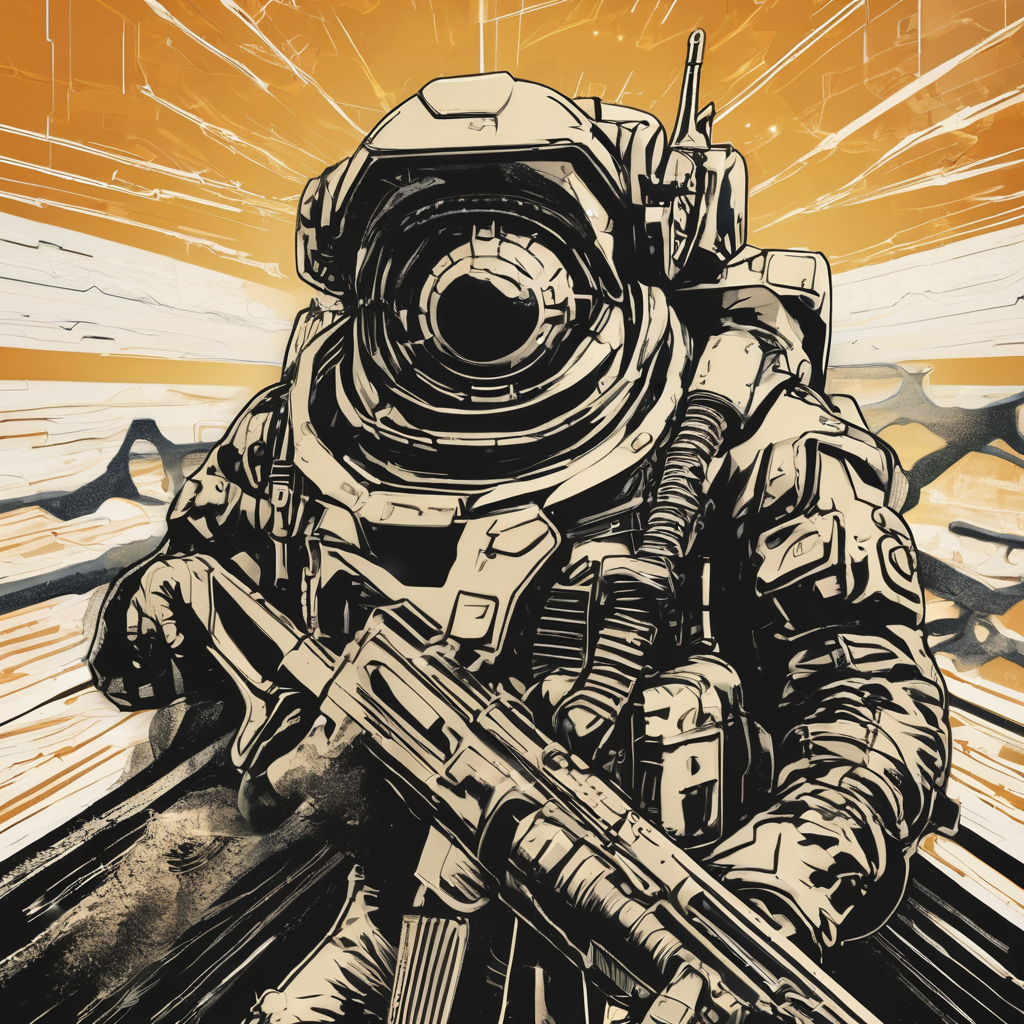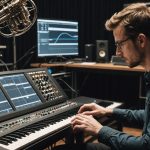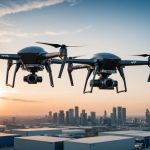The Influence of AI on Music Composition
Artificial Intelligence is revolutionising music composition by introducing innovative tools that reshape traditional creative processes. AI in music composition deploys algorithms to produce melodies, harmonies, and even entire musical scores. These AI-driven systems utilise vast databases of existing music to analyse patterns and styles, inspiring new creations. Notable tools include OpenAI’s MuseNet and Google AI’s Magenta, which demonstrate impressive capabilities in generating original compositions.
The role of music technology is instrumental in merging data-driven analysis with human creativity, aiming to enhance the production quality while minimising repetitive tasks traditionally handled by composers. Through extensive data analysis, AI can identify key patterns in compositions, encapsulating prevalent styles and trends to optimise and inspire new works.
Additional reading : Exploring the Eco-Friendly Advantages of AI in Managing Urban Park Ecosystems
While the advent of AI presents transformative benefits, it also impacts the role of composers and musicians. Composers can now collaborate with AI to explore innovative sounds and inspirations, possibly reducing their workload. However, this also poses challenges to traditional artistry, as musicians might need to redefine their roles in an increasingly automated landscape. To balance these impacts, embracing creative processes with AI can revolutionise how music is conceptualised and executed.
AI Tools for Sound Engineering
Advancements in AI technology have significantly transformed sound engineering and music production. With sophisticated AI tools, sound engineers are now able to refine audio with unprecedented precision and efficiency. Among these tools are AI-driven mixing and mastering software, which automate intricate tasks that traditionally required manual adjustments.
Have you seen this : Advancements in High-Performance Perovskite Solar Cells: Unlocking the Future of Energy Harvesting
One notable example is the use of AI tools in creating personalized music experiences. By analysing sound patterns, these AI tools can customize tracks to fit specific listener preferences. This aspect has been used effectively in both live sound environments and studio settings, offering a tailored listening experience.
Case studies reveal the successful integration of AI in sound production. For instance, AI algorithms have been employed to dissect and mix complex audio tracks, thus saving valuable time and increasing accuracy. In addition, AI-driven sound editing software is proving superior in identifying and isolating specific sound frequencies, allowing for targeted editing.
Comparing traditional methods to their AI-driven counterparts highlights the efficiency and flexibility that AI tools bring to the table. Where traditional processes might laboriously focus on each sound detail, AI applications swiftly process complex data, supporting engineers in achieving high-quality audio production seamlessly.
Benefits of AI in Music Creation
Artificial Intelligence (AI) presents a plethora of advantages in the realm of music creation, bringing a fresh wave of innovation and efficiency. For artists and producers alike, AI enhances both creativity and productivity by automating repetitive tasks and generating new ideas. Whether it’s composing melodies, writing lyrics, or even mixing tracks, AI tools offer creative assistance while freeing up time for more artistic endeavours.
AI plays a pivotal role in introducing cost-effective solutions. Traditionally, music production required expensive studio time and resources. Now, with the ability of AI to handle tasks such as sound editing or mastering, costs can be significantly reduced, making music creation more accessible to a wider audience.
Moreover, AI fosters innovation by providing novel ways to experiment with sound. Generative AI models can create unique sounds and compositional structures that might not have been conceived by human minds alone. This technological advancement opens the door to new genres and styles.
For aspiring artists, AI democratizes the music scene by making high-quality production tools more accessible. Beginners can now engage with sophisticated technology without needing deep technical knowledge, thus encouraging a diverse range of talents to explore their musical potential.
Challenges Associated with AI in Music
Navigating the realm of AI in music presents intricate challenges that merit attention. One primary concern revolves around the inherent limitations of AI technology. While AI tools excel at pattern recognition and data analysis, they struggle with grasping abstract concepts like emotion and intuition that are vital to the creative process. This can lead to music that, although technically proficient, may lack depth and emotional resonance.
Ethical implications further complicate the integration of AI in music composition. Questions arise about the ownership of music generated by AI. If an AI creates a composition, does the credit belong to the programmer, the user, or the AI itself? This creates a grey area in authorship and can affect how royalties are distributed.
Lastly, concerns about creative integrity and originality are prevalent. AI’s reliance on existing data means that it can inadvertently replicate or slightly modify existing works, which could lead to unintentional plagiarism. This raises questions about whether AI-generated music can ever truly be considered original or if it merely rehashes existing ideas. This ongoing debate challenges those in the music industry to rethink the concept of creativity itself.
Future Trends in AI and Music
The music industry future is increasingly intertwined with technological innovations. AI advancements are propelling forward this fusion, making significant impacts. A key emerging development is the use of AI to create more personalised music experiences. As these trends in music evolve, AI tools are predicted to become even more sophisticated.
AI is expected to augment creativity tools, assisting artists in generating new music with unprecedented efficiency. With machine learning algorithms continually improving, new applications will allow musicians to explore music industry future trends like genre-blending and real-time composition assistance. This not only aids in production but also in understanding audience preferences through data analysis.
A pivotal role AI will play is in enhancing music platforms to better cater to user needs. Soon, streaming services may predict what listeners want to hear before they realise it themselves. Therefore, musicians will need to adapt, using these tools to enhance their processes while maintaining a human touch. As AI becomes an integral part of music creation and consumption, the collaborative potential is vast, offering new opportunities to innovate within the music industry future.
Industry Insights from Professionals
In today’s rapidly evolving music industry, professionals are increasingly adopting emerging technologies. The integration of AI tools is significantly transforming creative processes. Let’s explore this further through various expert opinions.
Case Study: Notable AI Projects in Music
Several groundbreaking projects highlight the influence of AI. From virtual assistants crafting melodies to sophisticated algorithms remixing classics, these projects redefine music creation. For example, OpenAI’s Jukebox utilises machine learning to compose songs across diverse genres, showcasing the potential of AI in composition and production.
Interviews with Industry Leaders
Industry leaders express diverse opinions on AI’s role. Some believe it enhances creativity, while others stress the importance of protecting human artistry. For instance, renowned producer Mark Ronson notes that while AI can streamline processes, the human touch remains irreplaceable.
Perspectives from Emerging Artists
Emerging artists are embracing AI tools to innovate. They use AI for mixing, mastering, and even generating initial ideas, which broadens their creative range. This collaboration between AI and artists doesn’t just streamline productivity; it also opens new possibilities for inventive expression.
Through these insights, it becomes evident that the synergy between AI and humans is shaping the future of music, where creative boundaries are continually redefined.











